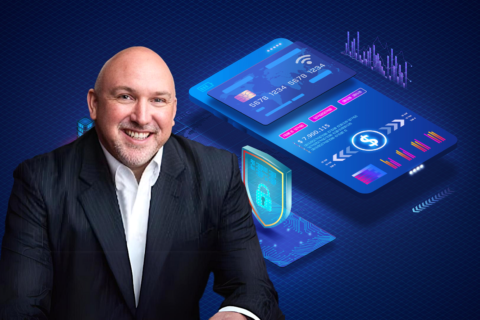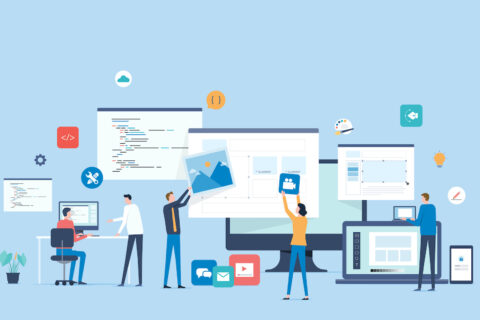As a business owner, client and customer responsibility rests squarely upon your shoulders. But that’s merely the beginning.
You also have standard business protocols that you must follow in order to maintain customer data security. For example, browsing an unsecured website or downloading unsafe files, could unleash a virus or malware upon your PC and network.
Keeping your technology and network safe rests solely upon you, unless you’ve outsourced this rigorous task to an IT service provider. If not, you are tasked with the sole responsibility of ensuring the data you collect and work on for your clients is safe from viruses, hackers, malware, and of course backed up so that it is not lost in the event of an unfortunate circumstance, such as a hard drive crash.
Data Security Best Practices
Your clients won’t remain clients for long if you fail in any of these endeavors, so it is important to always practice the steps needed to ensure the utmost security for your client’s data as well as your own. Here’s a look at six best practices to keep your data secure:
-
Back up your files.
Even though your files and data may be well protected from viruses, malware and hackers, you could still lose it all from a simple hard drive crash. Your PC likely has some sort of built-in backup application, or you could invest in another backup application.
You can easily set your backup preferences to backup data on a daily basis to an external drive or to the cloud, so that in the event that something does happen to your PC or hard drive, you’ll still be able to reclaim all your files.
-
Surf the web securely.
While surfing the web always review security features of your favorite social networking websites. If any website offers to scan your PC for viruses, adware and malware, you should leave that site immediately. More than likely, it is a scam to get you to download and install something on your PC.
Also, you should never download and install freeware and software from any website unless you know exactly what it is all about. Keep in mind that no reputable company will ask you to download and install anything to view their website. Microsoft Silverlight and Adobe Flash are the exception to this rule.
-
Never download and install free games.
If you want to play an online game, stick to Flash based games that work in browsers. If any site wants you to install something on your PC, leave that website immediately. If possible, avoid visiting some websites like hacking sites, porn sites, BitTorrent sites and application sites because these sites are full of malicious software.
-
Use the best antivirus software possible.
While many PCs often come with a standard application designed to protect the computer and its files from viruses, hackers and malware, the pre-installed software can often be lacking.
Additionally, one problem inherent in many antivirus applications is that they must be manually updated. That means that in the interim, before you’ve had a chance to download and install the latest update, ever-busy hackers might have already designed new viruses and malware that can take advantage of the flaws in older versions of the software, subsequently infecting your computer and possibly wreaking havoc on your files.
To remedy this, invest in the best virus protection software available, which by today’s standards are cloud-based anti-malware applications. Cloud-based antivirus software does not rely upon you to download and install updates—updates are installed automatically, keeping you protected against the newest threats.
-
Keep company data secure in the cloud.
Many people and organizations are wary of keeping data in the cloud. They think the Internet may be a dangerous place for important data. But, it’s a myth.
Nowadays, many cloud storage vendors are using advance data encryption techniques, antivirus scanning procedures, data backup techniques, and other security solutions that a personal computing environment cannot offer. By keeping important data in the cloud, you can save it from all the major threats such as environmental threats, unauthorized users, technical failures and malicious software.
-
Use data encryption.
Most IT servers used by small businesses and larger corporations are equipped with encryption applications, which help to keep data secure from those unauthorized to access it. Strong encryption applications for your own PC will protect all of your client’s important data, such as tax forms, client lists, and other sensitive information that definitely should not fall into the wrong hands, and especially not those of identity thieves.
The encryption helps to keep the data protected when being sent to others as well, such as files sent to the client for review. To ensure optimal protection, you’ll want your clients to utilize encryption as well. If your clients already have a method they use for encryption, then you might want to consider using the same application, rather than trying to get your clients to adopt your method.
Additional tips to keep your data safe include:
-
You should be cautious of any doubtful emails from the unknown source. You should never open emails with the attachments if you do not identify the sender of that mail. Further, do not fill any forms or sign-in screens that might be linked to the suspicious messages. If you find any suspicious email, you should report it spam immediately.
-
Never reply to an email with your important information like user ID and password to any suspicious email, instant message or webpage. You should also be wary of any websites that ask for your personal information.
-
Always create a unique, strong username and password for each of the online accounts. If you have multi accounts on different website, make unique password for each account.
-
Always use the latest or updated operating system and any utility software. The new version of operation systems and utility software repair the security holes in the previous version.
-
If your computer system has multiple users, it is wise to create separate user accounts that allow only necessary privileges. If possible, try to become the system administrator. By setting up individual accounts, a system administrator can control and monitor who has access any data or allow access only as required.
-
Clean out your computers’ Internet history, old cookies, browser cache and system temp folders on a daily basis and always update your browser to the latest release.
In Conclusion
Keep your business and customer data secure by remaining proactive. Back up your files daily, and protect them with encryption and the best antivirus software, so that you’ll never have to tell your clients that a file has been lost or sensitive data has been compromised.
Remember to also keep your PC firewall active, as the firewall also helps to ensure hackers cannot gain unauthorized access to your PC or send harmful code into your system in an attempt to gain access to data.
You might also consider insurance, which can protect you in case an accident destroys your computer equipment or a client attempts to sue you.
This article has been edited and condensed.
As a senior business associate, Peter Davidson strives to help different brands and start ups to make efficient business decisions and plan effective business strategies. With years of rich domain expertise, he loves to share his views on the latest technologies, applications and tax related topics through his well researched content pieces.
© YFS Magazine. All Rights Reserved. Copying prohibited. All material is protected by U.S. and international copyright laws. Unauthorized reproduction or distribution of this material is prohibited. Sharing of this material under Attribution-NonCommercial-NoDerivatives 4.0 International terms, listed here, is permitted.













